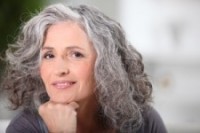LET’S RE-FRAME THE CONVERSATION
“How do we help adults start planning discussions about death and dying issues, and what tools do we need to do it?
That was common question posed by clergy and lay people who came together from Episcopal, United Church of Christ, Greek Orthodox, Roman Catholic, United Methodist Church, Unitarian Universalist, Presbyterian, Quakers faiths and more, for a thoughtful exchange regarding “Caring for Each Other in Life and in Death: The Role of Congregations in Health Care and End-of-life Planning”, a workshop co-sponsored by Massachusetts Council of Churches (MCOC) and Honoring Choices Massachusetts.
Clergy and lay leaders are uniquely positioned to provide powerful support to guide adults through care planning discussions, not just at the end of life, but all through their lives. “One of the gifts of being a member of a congregation is that you have a sense that we are all in this together through life’s multiple stages: birth, growth, illness, aging, death, and bereavement”, says Rev. Laura Everett, MCOC Executive Director and workshop moderator. In fact, convening care planning discussions long before a medical crisis, “is part of the vocation of clergy just as having these conversations is part of being human”, says Laura Shatzer, Ecumenical Advocacy Fellow.
The group shared some wonderful ideas about hosting educational seminars, health fairs and week-long events to encourage discussion, but noted how difficult it is to engage adults in death & dying conversations. Since this discussion is not just about preparing for death, but also about how we live and care for each other, we invited the group to re-frame their initial question to the following:
“How do we help adults start planning discussions about their health care choices, for quality person-centered care all through their lives, and what tools do we need to do it?
The group explored the premise that good health care planning is both ‘everyday care planning’ in which you work in partnership with your doctors for the best possible care at every stage of health, and ‘advance care planning’ in which you tell your doctors and family your choices and preferences for the care you want, in case one day you can not make medical decisions for yourself. Together everyday and advance care planning creates a personal road map for person-centered care starting early on when healthy, to managing wellness through to serious illness, and transitioning to end of life care. Making a health care plan protects your rights to receive the care you want, supports your family in caring for you, and helps your doctors know how to match quality care to your choices and preferences.
As for the necessary tools, Honoring Choices partners with community groups, such as faith based, senior groups and health care providers, and provides educational materials and proven programs that enable each group to provide hands-on help to adults to start a planning discussion and create a personal plan. Partners work together to build strong community networks to improve and coordinate person-centered care. For example, if your church starts a group discussion and helps a person make a plan, you can help connect that person to another partner, such as a primary care doctor, senior services, a hospital or hospice, whose staff can continue the planning discussion, help revise and update plans, and provide appropriate care. All group members received the Honoring Choices “What’s in Your Plan” handout packet with Massachusetts planning tools and documents.
As some group members pointed out, having a sustainable health care planning program at their church can help to normalize this discussion and welcome in congregants when they are ready. “Understanding how faith impacts our decision making and exploring these questions within our faith to make a plan through our lives can be a great gift to our communities”, says Rev. Laura Everett. Integrating a health care planning program can also improve outreach to the most vulnerable, isolated adults in our communities, and help them to find a ‘family’ within the congregation to participate in planning discussions and get connected to needed care.
Jennie Wright RN, CCM, Manager for the Integrated Care, Management Program, Newton-Wellesley PHO addressed the group and underscored the need to collaborate with care providers to be responsive to the community need. “In some parts of our health system, we have built silos which make it difficult to partner even with a group in your community who is doing the same work”, says Ms.Wright. She provided an insightful look into how we can work together to partner outside of our own domains to deliver care to our frail community members.
The workshop was an inspiring exchange of ideas with pioneering spiritual leaders and advocates, and we hope the first of many collaborating opportunities.
A Note of Gratitude…
Our wholehearted thanks to Rev. Laura Everett, Executive Director of MCOC, for her vision and support in co-sponsoring and moderating the workshop; to Laura Shatzer, Ecumenical Advocacy Fellow at MCOC, who led us through a thoughtful covenantal theology; to Jennie Wright RN, CCM, Newton-Wellesley PHO, for her commitment to helping us all reach across our practice arenas to collaborate as a community; to Rev. Sarah Irwin, Christ Church Episcopal, Waltham, our most gracious host; and many thanks to all the clergy and lay leaders who helped pioneer this successful event.
For more information about integrating a Health Care Planning Program into your faith community, contact Ellen DiPaola, edipaola@honoringchoicesmass.com, or send a message here.

